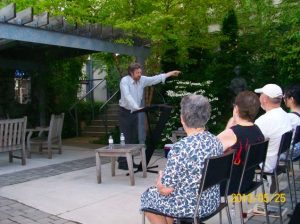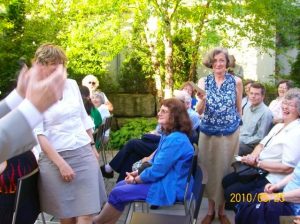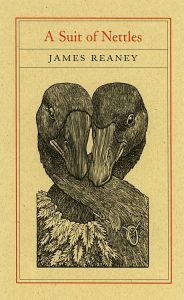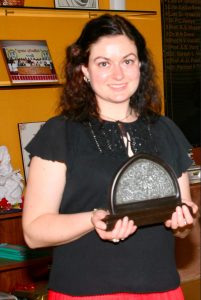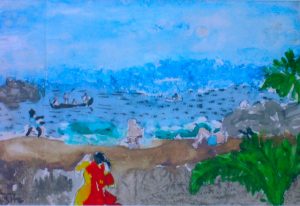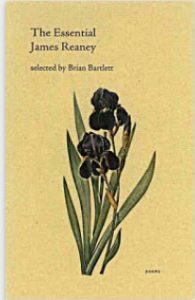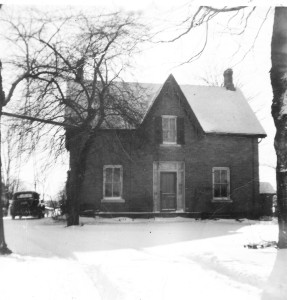A new edition of A Suit of Nettles, James Reaney’s set of pastoral eclogues inspired by Edmund Spenser’s The Shephearde’s Calendar, is available from The Porcupine’s Quill. A book launch and reading to celebrate the new edition will be held in May.
From the April eclogue, here are Valancy’s lines from the bardic contest celebrating Spring.
April
VALANCY
Your limbs are the rivers of Eden.
From the dead we see you return and arise,
Fair girl, lost daughter:
The swallows stream through the skies,
Down dipping water,
Skimming ground, and from the chimney’s foul dusk
Their cousins the swifts tumble up as the tusk
Of roar day
In bright May
Scatters them gliding from darkness to sun-cusp.
Your face unlocks the bear from his den.
The world has come into the arms of the sun.
What now sulky earth?
All winter you lay with your face like a nun,
But now bring forth
From river up boxdrain underground
Fish crawling up that dark street without sound
To spawn
In our pond
Young suckers and sunfish within its deep round.
Your body is a bethlehem.
Come near the sun that ripened you from earth
Pushing south winds
Through lands without belief till this pretty birth
The faithful finds:
Fanatic doves, believing wrens and orioles
Devoted redwinged blackbirds with their calls,
Archilocus alexandri,
Melospiza georgiana,
All surround you with arched cries of Love’s triumphals.
Your mind is a nest of all young things, all children
Come to this meadow forest edge;
Put her together
From this squirrel corn dogtooth young sedge
And all this weather
Of the white bloodroots to be her skin
The wake robin to be her shin
Her thighs pockets
Of white violets
Her breasts the gleaming soft pearly everlasting.
For her limbs are the rivers of Eden;
Her face unlocks
The brown merry bear from his den,
From his box
The butterfly and her body is a bethlehem
Humming
With cherubim
And her mind is a cloud of all young things, all children.
***
James Reaney, 1958
A Suit of Nettles won the Governor General’s Award for Poetry in 1958.
